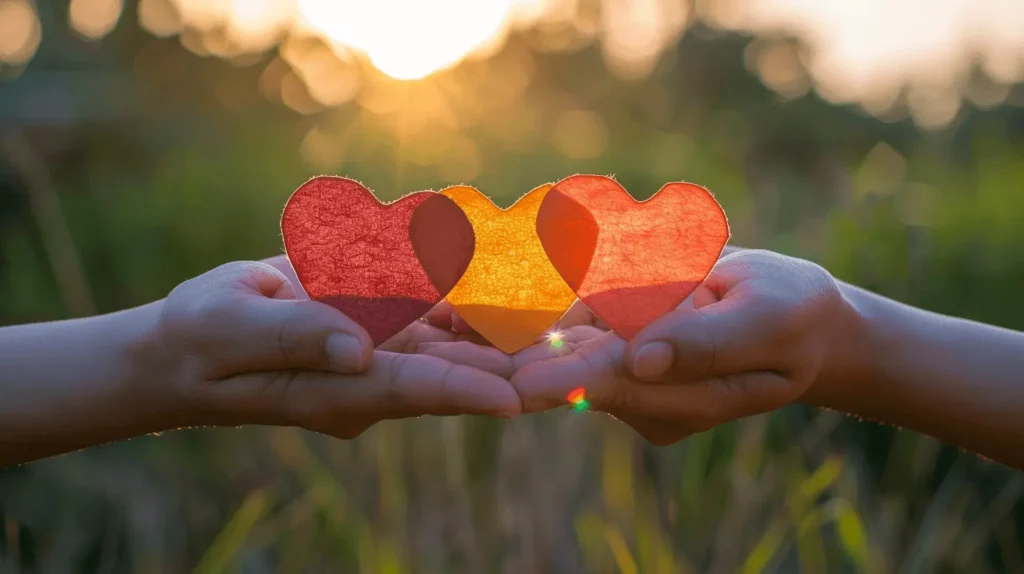Building Resilience to Make Kindness Stick
Understanding the benefits of kindness and developing core skills like empathy are crucial first steps. But how do we ensure kindness becomes more than just an occasional good deed? How do we weave it into the fabric of our daily lives consistently, even when faced with stress, negativity, or our own fatigue?
This requires cultivating two key elements: habit and resilience. Building positive habits helps automate kindness, making it a more natural part of our routine. Building resilience equips us to navigate the inevitable internal and external challenges that can derail our best intentions, allowing us to sustain our practice over the long term.

Weaving Kindness into Daily Habits
Making kindness a consistent practice involves applying principles similar to building any positive habit. The goal is to make kind actions easier, more obvious, and more rewarding.
Strategies for Consistent Kindness:
- Set Clear Intentions: Start your day by consciously deciding to look for opportunities for kindness. A simple intention like, “Today, I will practice patient listening,” or “I will express appreciation,” makes you more likely to notice relevant situations.
- Link to Existing Routines (Habit Stacking): Attach a small kind act to something you already do automatically. For example: Think of one thing you’re grateful for while brushing your teeth; send one kind text while waiting for your coffee; offer a compliment to the first colleague you see.
- Start Small & Be Specific: Grand gestures are great, but consistency is built on small, manageable actions. Focus on achievable acts you can do regularly. Instead of a vague goal like “Be kinder,” aim for “Hold the door for someone today.”
Acknowledge & Savor the Rewards: Pay attention to the positive feelings (warmth, connection, satisfaction – the “helper’s high”) that arise when you act kindly. Taking even a few seconds to savor this positive feedback reinforces the behavior in your brain.
Find Your Tribe (Social Support): Surround yourself with people who also value kindness. Share your experiences, join supportive communities (like ours!), or volunteer with like-minded individuals. Mutual encouragement is highly motivating.
Practice Gratitude Regularly: Cultivating gratitude shifts your focus towards the positive, naturally fostering a kinder outlook. Keep a simple gratitude journal or make it a habit to mentally note things you’re thankful for each day.
Cultivating Resilience for the Journey
Practicing kindness isn’t always easy. We face internal struggles and external difficulties. Resilience is the ability to navigate these challenges without abandoning our commitment to compassion.
Managing Internal Roadblocks (Fatigue & Burnout)
Constantly extending ourselves, especially when exposed to suffering, can lead to compassion fatigue or burnout. Sustainable kindness requires tending to our inner resources:
- Prioritize Self-Compassion: This is your most crucial tool. When feeling drained, critical, or overwhelmed, actively practice self-kindness, recognize common humanity, and use mindfulness. Treat yourself as you would a dear friend.
Establish Healthy Boundaries: Learn to say “no” respectfully when needed. Limit exposure to overwhelming negativity (including news cycles). Protect your time for rest and replenishment. Boundaries are essential self-care. - Seek Support & Connection: Talk about your challenges with trusted friends, family, mentors, or professionals. Don’t carry the burden alone. Peer support can be incredibly validating.
Navigating External Challenges (Unkindness & Negativity)
Encountering rudeness or negativity can be discouraging. Responding resiliently involves:
- Pause & Regulate: Before reacting, take a breath. Create space between the trigger and your response to avoid impulsive escalation.
- Consider Perspective (Cautiously): Try to understand why someone might be acting unkindly (stress, fear, pain?), without excusing the behavior. This helps depersonalize the interaction.
Communicate Assertively: If needed, address the behavior calmly and respectfully using “I” statements and focusing on the specific action and its impact. State your boundaries clearly. - Strategic Disengagement: Recognize when a situation is unproductive or toxic. Sometimes the kindest act (to yourself) is to limit contact or walk away.
- Act from Your Values: Strive to respond based on your own principles (kindness, respect) rather than mirroring negativity, while still protecting yourself.
Embracing Imperfection: Kindness as a Practice
Remember, cultivating kindness is a lifelong practice, not a destination of perfection. There will be days you fall short. You’ll react impatiently, miss opportunities, or feel less than compassionate.
The key is to meet these moments with self-compassion, not self-criticism. Acknowledge the lapse, learn what you can from it, and gently recommit to your intention. Resilience includes the ability to bounce back from our own imperfections with kindness towards ourselves. Every moment offers a fresh start to choose kindness again.
